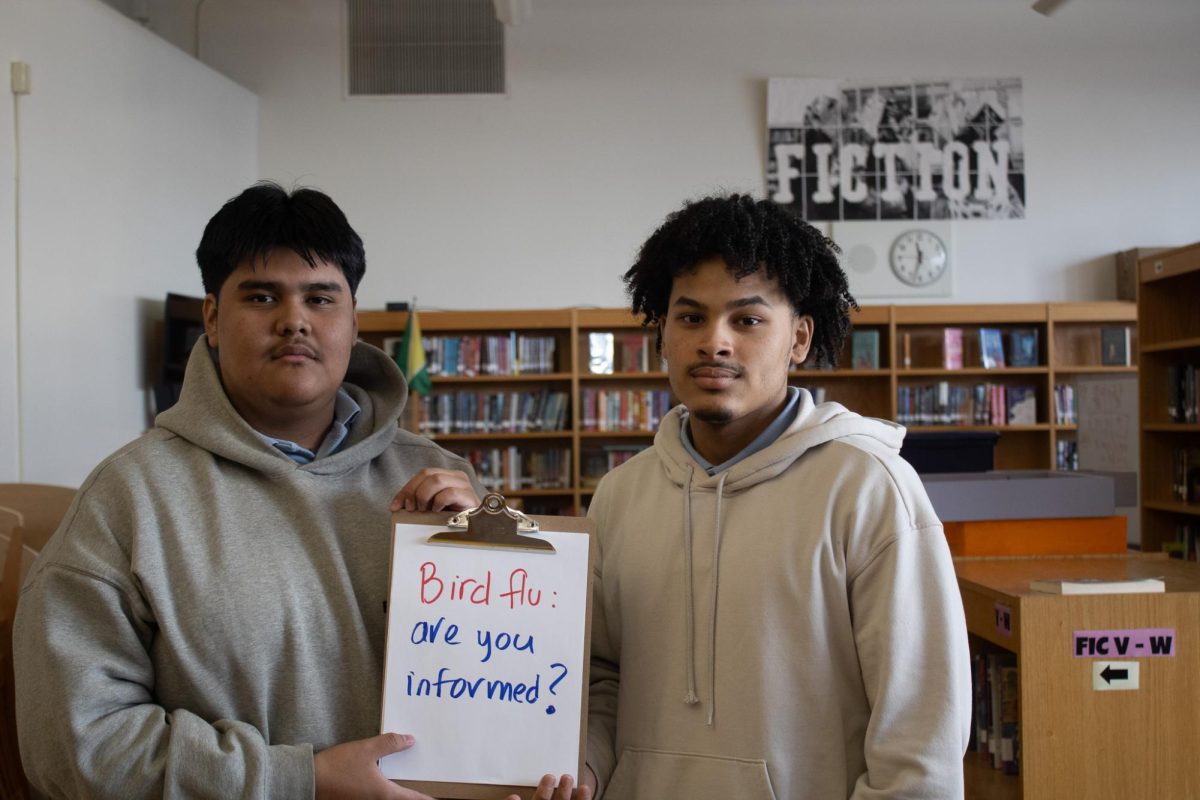
Helen Leshinsky
Ever wondered why egg prices have increased so dramatically? The culprit is bird flu, which has caused the supply of eggs to decrease to the point of shortage. The prices of eggs have nearly doubled in the last year. What is bird flu and how does it affect people’s daily life?
Bird flu, also known as avian influenza, is a disease that primarily affects birds like chickens, turkeys, geese and ducks but the disease can also spread to humans and other animals in certain cases. The virus is usually carried by wild birds and spreads by their droppings, saliva, or nasal secretions.
Bird flu poses a public health risk by infecting people and causing them symptoms like sore throat, fever and headaches and could possibly cause death.
Here are five facts about bird flu that you should know:
Where did bird flu come from?
Bird flu originated from Southern China.
How many people in the U.S. have contracted bird flu? How many have died? What are scientists saying?
So far, 70 people in the U.S. have been reported to have contracted bird flu from infectedAnimals. 261 cases of human infection with avian influenza A(H5N1) virus have been reported from five countries within the Western Pacific Region (Table 1). Of these cases, 142 were fatal, resulting in a case fatality rate (CFR) of 54%. Scientists are saying bird is flu doesn’t easily infect humans and currently doesn’t spread from person to person.
How is it affecting daily life?
The bird flu is driving up egg prices and tearing through dairy farms. Here’s what has changed: rises in egg prices, increased euthanization of poultry, and the virus’s spread to mammals, including dairy cows, raising concerns about potential human infections.
Can bird flu’s newest mutations spread from human-human?
A strain found in a human in Texas shows nine (9) mutations that enable it to more easily replicate in human cells and cause more severe disease in mice compared to a strain found in dairy cattle. Further mutations are possible. Scientists say the virus is capable of mutating quickly and fear the moment it is able to spread from human to human. Texas Biomed Professor Luis Martinez-Sobrido, Ph.D said, “The clock is ticking for the virus to evolve to more easily infect and potentially transmit from human to human, which would be a concern.”
How can we protect ourselves?
Only consume pasteurized dairy products
Refrigerate — and cook — your eggs, meat and poultry
Get your human influenza vaccine
Protect and vaccinate your pets
Avoid contact with wild, sick or dead birds and livestock
Wash your hands thoroughly and often
Wear a mask in over populated areas
In conclusion, bird flu (avian influenza), is a highly contagious infection that primarily affects birds but could eventually spread to humans and other animals in certain circumstances. In order to prevent the fast spread of this disease, people should take precautions such as avoiding wild birds and livestock, washing your hands thoroughly, and wearing masks indoors to stop the potential spread.